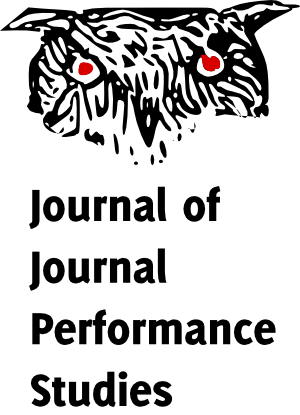The future of academic publishing? More copyright policing.
From a paywall article at the CHE, comments from a recent academic publishing conference that suggest more policing of the distribution of academic work online:
University Presses Are Warned to Guard Copyrights While Sharing Their Wares
By Jennifer Howard
Baltimore
University presses have injected a lot of energy lately into collaboration: with each other, with their parent institutions, and with academic libraries. But this month, at the presses’ annual meeting, the appeal of collaborating ran up against worries that their strongest asset, intellectual property, is under threat.
Collaborate and share-but protect your copyrights: That was the sometimes conflicting message heard at the Association of American University Presses gathering here. “Copyright is under constant attack today,” Jon A. Baumgarten, a veteran intellectual-property lawyer, told the crowd at a plenary session on “Back to the Future of Copyright.” He advised the press association to be vigilant.
Almost 700 scholarly-publishing professionals registered, making it one of the association’s largest meetings ever. (Last year’s meeting, in Salt Lake City, had 534 people registered.) The copyright debate took place alongside other sessions with a practical turn, as attendees compared notes on how to acquire, produce, and market scholarly books and journals at a time when many presses are under financial strain. And not surprisingly, e-books continued to be a hot topic.
A “rah, rah, rights” tone was set the first evening, in a keynote speech by David Simon, a former journalist and the creator of the HBO series The Wire. Mr. Simon gave the crowd a pep talk about the importance of doing something for its own sake, without regard for commercial reward. But creating that kind of work has to be supported somehow, he said, pointing to the decline of mainstream newspapers as an example he has lived through. That decline wasn’t the fault of the Internet, he said, but of newspaper owners devaluing their own product, gutting reporting operations, and giving away content.
“Intellectual property needs to be fought for,” Mr. Simon told the crowd in his hard-bitten reporter’s manner. “Copyright matters.” His listeners broke into applause.
Nobody wanted to talk on the record about what could be a pivotal battle in the war over copyright and fair use: the current legal case in which three scholarly publishers-Cambridge University Press, Oxford University Press, and SAGE Publications-charge that Georgia State University was overly liberal in its use of their copyrighted material in library e-reserves and on university Web sites.
Even publishers not directly involved in the litigation have been reluctant to comment about the lawsuit publicly. The case has been a reminder that publishers and libraries continue to have very different ideas about when and how much users ought to pay to use copyrighted material. And it’s unfolded at a time when university presses have stepped up efforts to figure out better ways to market e-books to libraries.
Publishers don’t want libraries to share too much copyrighted material without paying for it, but they also don’t want to alienate libraries as customers. A packed room heard pitches about four ventures on track to sell aggregations of scholarly e-books to libraries.
The projects are being developed by Project MUSE, JSTOR, Oxford University Press, and Cambridge University Press-the last two also plaintiffs in the Georgia State case. Michael Levine-Clark, a panelist and collections librarian at the University of Denver, gave listeners a detailed list of what libraries want from publishers trying to sell them e-books: flexible pricing, simultaneous availability of digital and print editions if a book’s coming out in both formats, and as few restrictions on use as possible.
Fighting Piracy
Pirated copies of their books have been a concern for scholarly publishers, although it’s not clear how many sales piracy has cost them. A session on “Is Piracy Good for Sales?” didn’t answer the question. But the worry is real enough, for authors as well as for publishers. The session’s moderator, Garrett P. Kiely, director of the University of Chicago Press, recounted his experience with Attributor, a company that tracks down pirated online copies of clients’ copyrighted material and helps them get that material taken down. Lately the Chicago press has had about 250 takedowns a month, according to Mr. Kiely.
Attributor’s services cost about what it would cost to hire a junior-level staffer for a year, Mr. Kiely said in a conversation later with The Chronicle. The Chicago press plans to do a six-month review soon to determine whether Attributor is worth it.
Protecting copyright is not just about possible sales revenue. The market for many scholarly books is likely to be specialized and small, but still, as Mr. Kiely put it, for authors “there’s a pride of ownership.”
Posted on Mon, 13 Jun 2011 15:05:28
